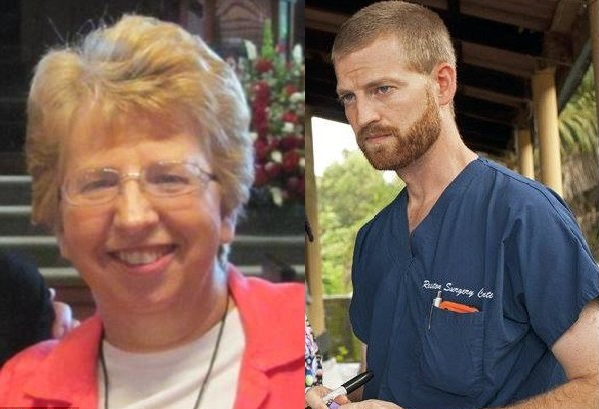
Dr Kent Brantly, the American doctor who contracted the deadly Ebola virus while treating patients from West Africa, has issued a statement from his quarantined ward, in a hospital in Atlanta, saying that has become stronger since receiving an experimental treatment for the disease.
Brantly had been given ZMapp, an experimental drug that allegedly cures people from the Ebola virus. Brantly was the first person, on whom the drug was tested.
Before Brantly, this drug was tested on chimpanzees, and it seemed to have worked perfectly on them.
"I am growing stronger every day, and I thank God for His mercy as I have wrestled with this terrible disease," Brantly was quoted I the statement, by Fox News. "I also want to extend my deep and sincere thanks to all of you who have been praying for my recovery as well as for Nancy (Writebol) and for the people of Liberia and West Africa."
Nancy Writebol is another health worker, who contracted the disease in West Africa, while she was treating patients. She was also given the experimental drug. The drug ZMapp became a part of a huge controversy, as the authorities from the US said that they do not have enough resources for mass trial.
The World Health Organisation (WHO) also criticised the US authorities for giving these two health workers the drug without proper clinical trials. The US authorities also drew criticism from around the world, as people started asking why two US citizens were getting the drugs, while hundreds of inflicted people in West Africa were left untreated.
However, the fact that Brantly seems to be becoming stronger every day could be interpreted as a good sign by the international community. This could mean that someone has finally discovered the cure for Ebola virus. Considering the high death toll in West Africa, even the WHO has been considering setting their rules aside and going ahead with mass scale clinical trials.
Brantly, who wrote this statement from the isolation of his ward, also went on to thank all his well wishers and asked everyone to pray for the inflicted people in the four West African states of Guinea, Sierra Leone, Liberia and Nigeria.

















